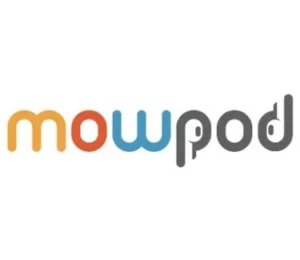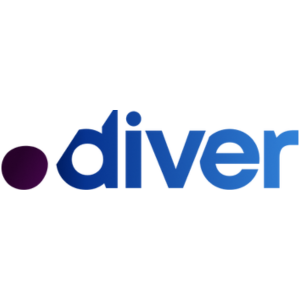LISTEN IN A POD APP
Filters
Jeremy Haft | Digital Remedy
The Evolving CMO Role — Jeremy Haft // Digital Remedy
Jeremy Haft, Chief Revenue Officer at Digital Remedy, assesses the role of the CMO. In recent years, the role of the CMO has undergone a transformation, driven by a global pandemic and disruptions in the supply chain. Essentially, the CMO's role has evolved from that of a creative visionary to a strategic leader tasked with…
Play PodcastNii Ahene | Tinuiti
MarTech Strategy in a nutshell — Nii Ahene // Tinuiti
Nii Ahene, Chief Strategy Officer at Tinuiti, looks into digital marketing acquisitions as a strategy. The environment created by iOS 14.5 ATT and the broader push for user privacy has disrupted the conventional means of understanding the effectiveness of marketing efforts. As advertising partners lose access to certain user data due to privacy measures, marketers…
Play PodcastAraks Nalbandyan | 10Web
How To Become A Category King — Araks Nalbandyan // 10Web
We’ve come to the final part conversation about technology shifts in the marketing landscape with Araks Nalbandyan, Director of Marketing at 10Web. So far this week, Araks and I have discussed how AI is revolutionizing digital marketing and yesterday, we talked about some modern SAS marketing strategies. Today, we're going to wrap up the conversation…
Play PodcastAraks Nalbandyan | 10Web
Modern SAAS Marketing Strategies — Araks Nalbandyan // 10Web
We continue the conversation about technology shifts in the marketing landscape. Joining us is Araks Nalbandyan, Director of Marketing at 10Web. Yesterday, Arak's and I talked about how artificial intelligence is revolutionizing digital marketing. and today, we're going to continue the conversation about some modern SAS marketing strategies.
Play PodcastAraks Nalbandyan | 10Web
How AI Is Revolutionizing Digital Marketing — Araks Nalbandyan // 10Web
Welcome to the Martech Podcast. This is a 3 part conversation about technology shifts in the marketing landscape. Joining us is Araks Nalbandyan, Director of Marketing at 10Web, which simplifies website building and hosting through automation by enabling everyone to have an online presence that prioritizes growth and creativity over time consuming manual tasks. Today,…
Play PodcastSean Casto | PreApps
How to make an app go viral in 60 days — Sean Casto // PreApps (copy)
Today we're going to discuss why marketing on the small screen still matters. Joining us is Sean Casto, the Founder and CEO at PreApps, which is a service that helps companies grow their app adoption to millions of downloads and sales. In part 2 of our conversation, we're going to talk about how to make…
Play PodcastSean Casto | PreApps
How to make an app go viral in 60 days — Sean Casto // PreApps
Today we're going to discuss why marketing on the small screen still matters. Joining us is Sean Casto, the Founder and CEO at PreApps, which is a service that helps companies grow their app adoption to millions of downloads and sales. In part 2 of our conversation, we're going to talk about how to make…
Play PodcastSean Casto | PreApps
The 7 pillars mobile app marketing
Today we're going to discuss why marketing on the small screen still matters. Joining us is Sean Casto, the Founder and CEO at PreApps, which is a service that helps companies grow their app adoption to millions of downloads and sales. In part 1 of our conversation, Sean is going to walk us through his…
Play PodcastSean Casto | PreApps
The 7 pillars mobile app marketing
Today we're going to discuss why marketing on the small screen still matters. Joining us is Sean Casto, the Founder and CEO at PreApps, which is a service that helps companies grow their app adoption to millions of downloads and sales. In part 1 of our conversation, Sean is going to walk us through his…
Play PodcastRyan Ruud | Lake One
How to build a sales and marketing alignment roadmap — Ryan Ruud // Lake One
Today we're going to discuss how to be good neighbors when it comes to sharing a fence with your sales team. Joining us is Ryan Ruud, Founder and CEO at Lake One, which is an agency that works with startups, social enterprises and growth-driven brands to plan, strategize, and execute digital marketing programs. In part…
Play PodcastAbout Marketing Channel: SEM
What is SEM?
Search Engine Marketing (SEM) is a digital marketing strategy designed to boost a website's visibility in search engine results (SERPs). The emergence of ecommerce and online shopping resulted in search engine marketing becoming a crucial online marketing strategy for businesses.
SEM and SEO are similar, yet different practices.
- SEM - Acquiring traffic with paid search listings. It's also known as paid search or pay-per-click (PPC).
- SEO - Acquiring traffic and building online visibility through unpaid listings. It's also known as organic search. Search engine optimization and content marketing (Blog posts, social media posts, etc.) are heavily utilized to boost organic rankings in SEO.
Most businesses incorporate a mix of PPC and SEO strategies to their overall digital marketing strategies.
Why is SEM Important to Search Marketing?
SEM helps businesses reach and connect to consumers at the time when they're most interested in purchasing a service or product from your company. While SEO is a crucial part of your long-term digital marketing strategy, search engine marketing presents several unique marketing opportunities.
- Search engine marketing increases ROI - Paid ads guarantee more views and revenue from marketing campaigns. Businesses who utilize platforms like AdWords make $2 in revenue for every $1 spent. More than half of online shoppers who see and interact with PPC Ads click-through.
- Search engine marketing increases awareness - Even if a consumer doesn't convert after seeing an ad, it still helps increase brand awareness. Although SEO's main focus is organic visibility, paid ads can provide that benefit too. Search ads can increase brand awareness 80% on average according to Google.
- Search engine marketing is perfect for local marketing initiatives - SEM is useful for local marketers whose goal is to connect local businesses with consumers in the surrounding community. Local marketers leverage user queries like "Clothing stores by me," or "Restaurants in Los Angeles," to connect them with relevant ads and business listings in search engines.
Although local SEO is better suited for generating long-term success, SEM can provide immediate foot traffic for businesses. SEM can increase foot traffic nearly 75% to a business nearby when users search with location queries.
- Search engine marketing guarantees immediate results - Although SEO is best suited for creating sustainable, long-term organic search traffic, SEM holds the best potential to generate immediate results in the short term. Search marketing ads and ad groups are easy to create in ad platforms. The average ad creation time is one business day from concept to ad platform approval review.
Once launched an ad does most of the work, although marketers still need to apply ad optimizations to ensure it's reaching the intended target audience.
- Search marketing helps businesses better understand search intent - Marketers rely on search intent to best serve the right, optimized ads to consumers. PPC search campaigns provide a wealth of data marketers analyze to identify patterns in search terms and conversions. It's common for search marketing specialists to derive search intent from paid search channels and apply the information to organic search strategies.
- Search marketing presents omnichannel marketing opportunities - Ad campaign options are diverse in SEM. Text-based ads are the default ad type, but search marketing specialists also have display ads, retargeting ads and call tracking ads at their disposal. Search marketing is also well suited for mobile marketing.
- Search marketing is an excellent source for drawing qualified leads - search ads present the ability to acquire the right type of search traffic. Search engine marketing allows for users to create custom target audiences who are more likely to engage with your ad.
Types of Search Engine Marketing Ads and Strategies
SEM campaigns utilize a mix of the following ad platforms and strategies:
- PPC (Landing pages, etc.) or CPC (Cost-per-click)
- AdWords
- Bing Ads
- Product listing ads (PLAs) for ecommerce
- Google Shopping
- Amazon Ads
- Google Analytics
How Search Engine Marketing Works
Search engines apply complex algorithms to a set of search query variables to deliver the most relevant search results to users in SERPs. The algorithms process user information, location and linked account details to deliver tailored, optimized results.
How search results appear depends on whether a company uses an organic or paid search approach. Paid and sponsored ads appear at the top or next to the first search engine results to appear. Various ads from companies whose keywords match users' search queries will populate on the results page. Search engines select the most relevant ads according to a user's query and what keywords the company bid and paid for in order to appear in search results pages.
How Search Engines Earn Revenue from Search Engine Marketing
Search engines like Google, Yahoo, Bing and Baidu earn revenue with their own SEM programs unique to their platforms. Although search engines are free, they earn revenue primarily from their advertising services.
Google Ads is one of the most popular ad services worldwide and is the main source of Google's revenue. Google's advertising also includes its AdSense program, allowing unaffiliated websites to use Google advertising on their sites.
Companies and organizations must outbid each other in order to gain the coveted top spot in Google ads. Google's pay-per-click model requires advertisers to pay Google for each time a visitor clicks on their advertisement. Companies determine which keywords to target and clarify how much they're willing to spend on them for their ad campaign.
Clicks vary in costs depending on the keywords used, the amount of bids and other variables. Google assesses and assigns a quality score to the ad to determine its relevance and ranking.
Quality score variables include:
- The ad's maximum bid.
- The selected keywords.
- The ad content's relevance to chosen keywords.
Google's ad integrations apply to all of its properties including YouTube, Gmail and Google Maps. Recommended websites and ads appear whenever you're logged in on their properties.
SEM Software and Analytics
SEM analytics are essential to the success of search marketing strategies. SEM software provides valuable insights to help grow your business and successfully execute SEM campaigns. A variety of SEM tools exist that can manager your SEM strategies, from search engine optimization features to keyword research tools.
The most popular SEM software available on the market are:
- SEMrush
- WordStream
- Google Ads
- SuperMetrics
- OtpyMyzr
- Spyfu
WordStream and SEMrush are suitable platforms that provide basic digital advertising features for small businesses with limited budgets. Google Ads are best suited for ecommerce endeavors or personal blog posts. Ultimately finding the right one for you depends on your search marketing strategy and business needs.
How to Create an SEM Keyword Strategy
Keyword choice is a critical component to whether your PPC campaign is successful or fails. SEM keyword strategies begin with brainstorming brand terms that define your product or the terms competitors are using.
Budgets play a large role in keyword selection. Companies with smaller budgets benefit from choosing keywords that hold buying intent. Larger budgets provide more choices, opening up options to choose keywords that target early stages of the buyer's journey.
Striking a delicate balance between high and low-volume keywords is vital to a successful keyword strategy. A niche keyword with low traffic won't get results for your ads, but a keyword with huge traffic numbers is highly competitive and expensive.
Read MoreRead Less
Sponsors of the MarTech Podcast



































